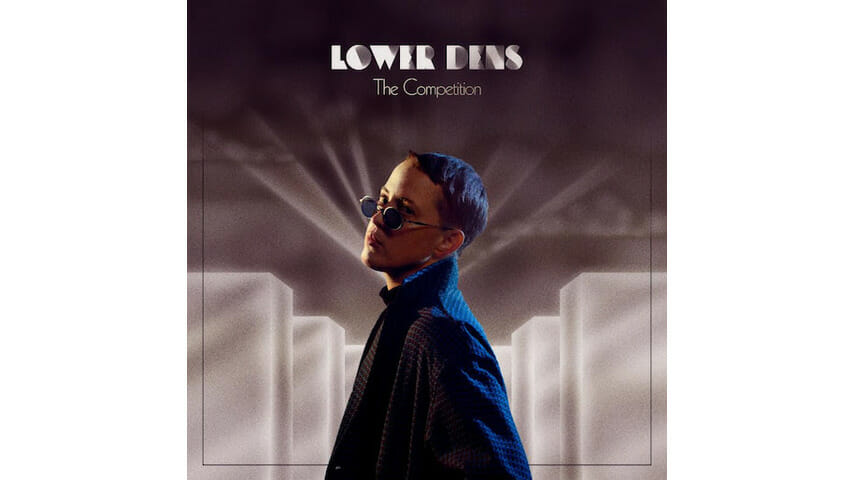On The Competition Lower Dens Invites Us to Dance on the Ruins of Capitalism
Once known for railing against the machine, Lower Dens inventory the internal ravages of capitalism

In 2015, Lower Dens bandleader Jana Hunter told CNN that his goal in becoming a musician was “to be someone who stood in-between politicians and the public and helped to hold politicians to their word. And to expose subtleties of politics that maybe wouldn’t [otherwise] be clear.” Apparently, Hunter’s original life goal was to become a political journalist, which explains why his lyrics have often sounded like holdovers from the ‘60s folk protest tradition, even within the context of modern indie pop.
Then promoting Lower Dens’ third album, Escape From Evil, the Hunter’s stated ambition doesn’t appear to have changed on the new follow-up, The Competition. But to their ultimate credit, Hunter and the rest of the band have crafted an effortless listen, one that sees them return with new insights without ever getting heavy-handed: Music for making bitter pills easier to swallow.
With The Competition, the band revisits the fusion of synth-pop, mainstream pop and the goth-tinted dance music they introduced on Escape From Evil. This time, though, they combine those elements more seamlessly and allow the music to act as a disarming agent. Sonically, much of The Competition comes across as celebratory, perhaps even giddy—and certainly danceable. Clearly, Hunter understands that, for the audience to receive such an urgent message, it sometimes helps to lift them up first, especially since Hunter tends to be such a blunt lyricist.
If it weren’t for ultra-direct lyrics like “In every generation / There are those who just don’t fit in”—from the bubbly disco-synth pulse of “Young Republicans”—you might be able to sit (more likely dance) through The Competition without even realizing that you’re being invited to dance on the ruins of a system that threatens to decimate us first if we don’t do something about it.
-

-

-

-

-

-

-

-

-

-

-

-

-

-

-

-

-

-

-

-

-

-

-

-

-

-

-

-

-

-

-

-

-

-

-

-

-

-

-

-








































